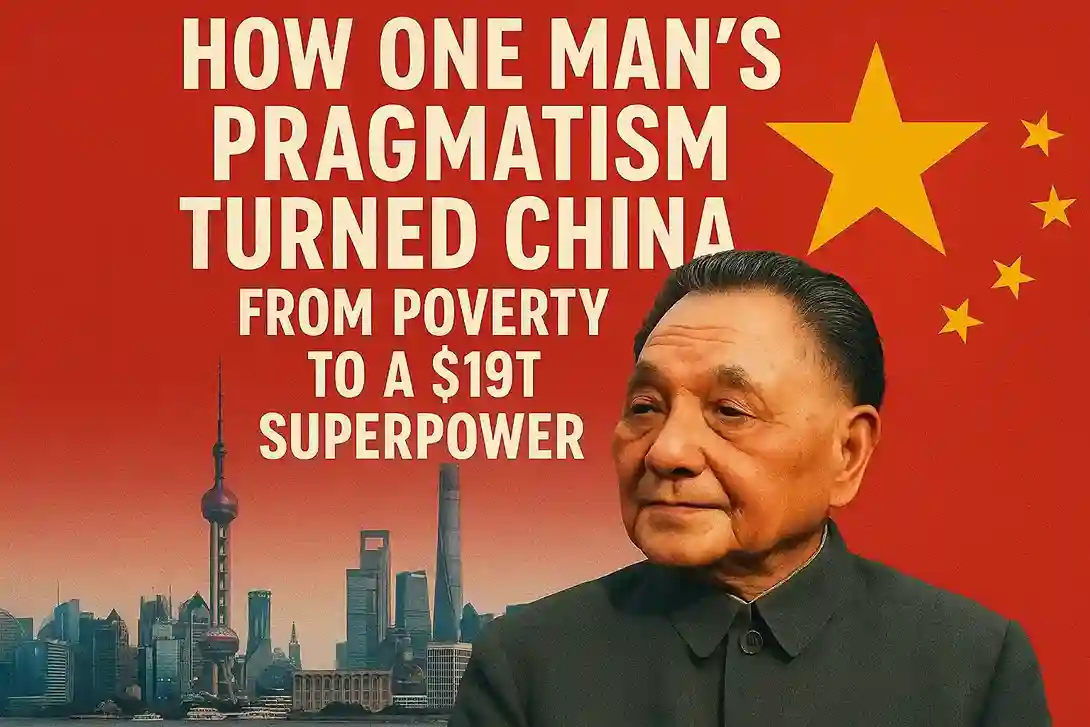How One Man's Pragmatism Turned China from Poverty to a $19T Superpower

How One Man's Pragmatism Turned China from Poverty to a $19T Superpower
BEIJING, China – In 1978, the People's Republic of China was an isolated and impoverished nation, with a per capita income lower than that of Kenya. Today, it stands as a $19 trillion economic giant, the second-largest economy in the world. This monumental transformation, arguably the greatest economic miracle in human history, can be largely credited to the vision of one man: Deng Xiaoping.
After the tumultuous era of Mao Zedong, Deng rose to power and steered China away from rigid ideology towards a new, pragmatic path. His guiding philosophy was famously captured in his motto: “It doesn't matter if a cat is black or white, as long as it catches mice.” For Deng, economic results mattered more than communist dogma.
This practical approach led to a series of radical reforms that unleashed China's potential:
- Opening to the World: Deng ended decades of isolation by rolling out the red carpet for global investors, inviting foreign capital and technology into the country.
- Rural Revolution: He dismantled the collective farming system, allowing farmers to manage their own land and sell their surplus produce. This single move boosted agricultural productivity and lifted millions out of rural poverty.
- Special Economic Zones: He launched experimental business zones, most famously turning the small fishing village of Shenzhen into a booming metropolis and a global hub for manufacturing and technology.
The results of Deng's "socialism with Chinese characteristics" were nothing short of staggering. Over the next four decades:
- An unprecedented 800 million people were lifted out of poverty.
- The nation's GDP grew by an astonishing 100 times.
- The average life expectancy rose by 11 years, a clear indicator of improved quality of life.
Deng Xiaoping passed away in 1997, but his influence is embedded in every skyscraper in Shanghai and every factory in Guangzhou. He didn't just build factories or infrastructure; he rebuilt lives, restored national pride, and fundamentally reshaped the global economy. His legacy serves as a powerful testament to how pragmatic leadership can alter the destiny of a nation.


